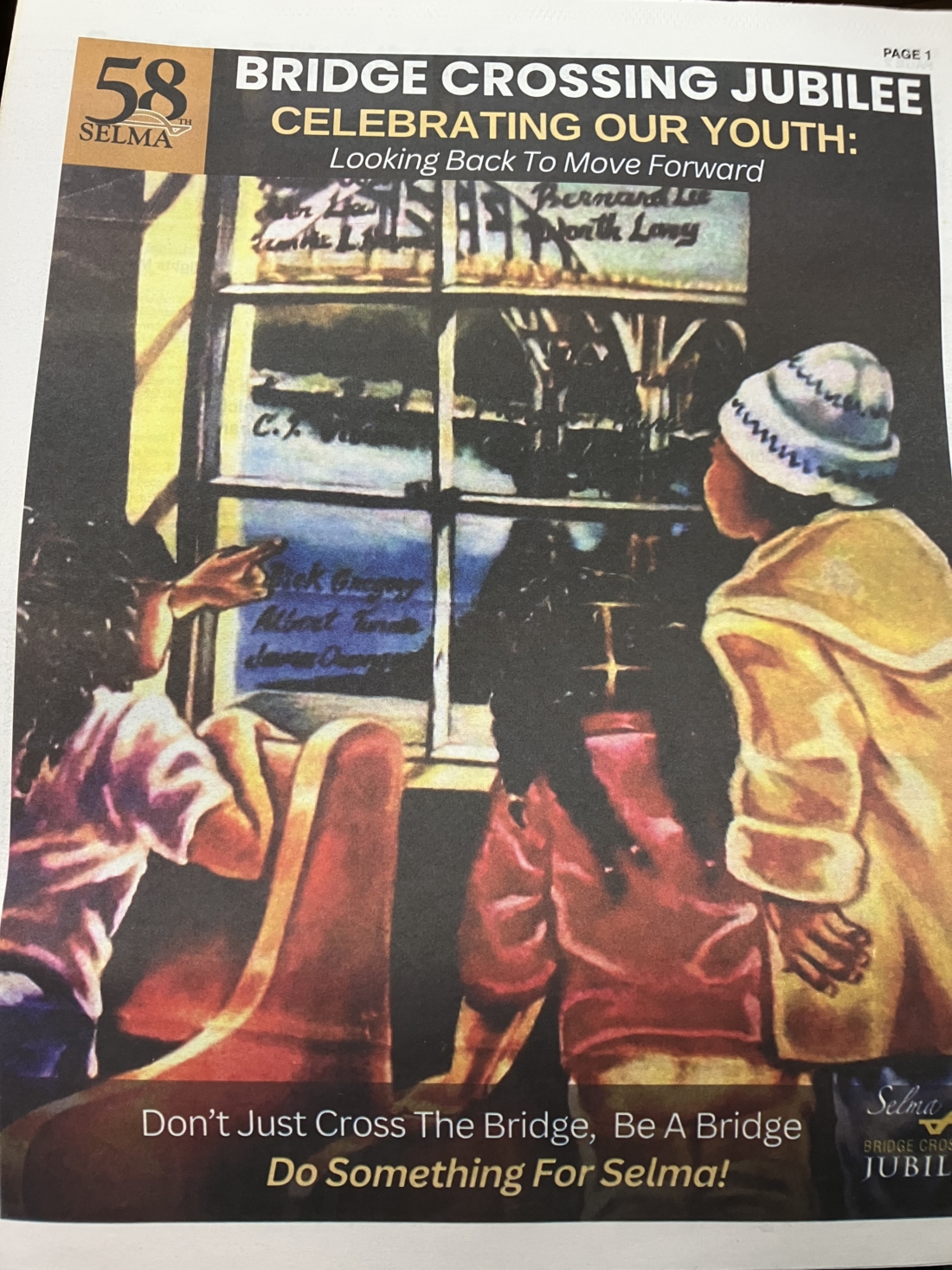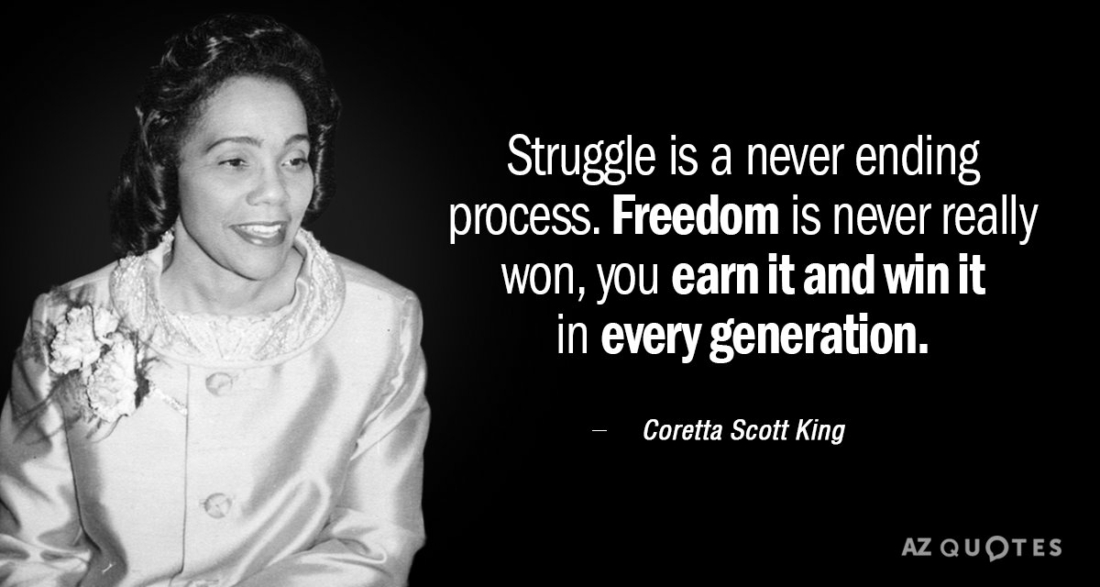Passing It on to the Next Generation
Today we left Montgomery to travel west to Lowndes County and Selma, Alabama on Day 4 of Marching, Riding, Walking, Sweating, Talking, Laughing, Crying, Sleeping, and Eating our way down Freedom’s Road.
As we all know, googling for days and hours of operation for many businesses and institutions is a crapshoot, especially with staffing shortages during and after the pandemic.
At our first stop, the Lowndes Interpretive Center on the Selma to Montgomery Trail, we ran into a group of 8th graders from Rye, New York and their teachers, who were victims of this crapshoot. Like us, they were disappointed that we could not interpret what happened at Tent City with the aid of the National Park Service. So we would have to wing it like teachers sometimes have to do when the lesson plans won’t work. Dr. Michael Naragon, one of our fearless leaders on the trip (I appreciate your organizational wizardry, Kate), seized the moment and asked questions of those 8th graders. They did an excellent job answering those unexpected, unrehearsed queries.
In turn, one of the teachers from New York, Mr. Joseph Trumbull, educated us. We learned that black farmers owned the land that Tent City stood on two years and Lowndes County is one of the poorest counties in the US. But what I will take from the impromptu lesson was twofold. One is an aphorism he said to his class – There will be prizes and surprises; You will be rested and tested. Second, he said you should understand history through who controlled the grapes. At first, I didn’t understand – was he talking about the fruit? Then I had the a-ha moment that it is an acronym that stands for Geography, Religion, Achievements, Politics, Economy, Social Structure. I will use that in the fall when I teach the to-be-developed unit that comes from this transformational journey.



That’s a long winded way to get to the question I’ve been wrestling with: How do we as adults (not just teachers) decide what to pass on to the next generations in terms of history? The answer is we tell the stories of the people involved, not the facts and figures. We have heard from two Civil Rights heroes so far on the trip – Charles Person in Atlanta and JoAnne Bland in Selma. Both were teenagers when they struggled for their inalienable rights. How can you not be inspired by their examples of courage and persistence? They are still fighting for equal rights today. Like Coretta Scott King said, “Struggle is a never ending process. Freedom is never won, you earn it and win it in every generation.” That is so important for our students to comprehend.
As educators, we are constantly fighting against technology for our students’ attention. But compelling stories are always going to win out. For most of human history, it’s the storytellers that have preserved our knowledge and inspired us. So I’m going to tell great stories and guide my students to even more. Like the picture says, I’m not going just cross the bridge. I’m going to be a bridge – a bridge between generations. And I’m going to do something for Selma. I’m going to tell Selma and her people’s story to anyone who will listen.
